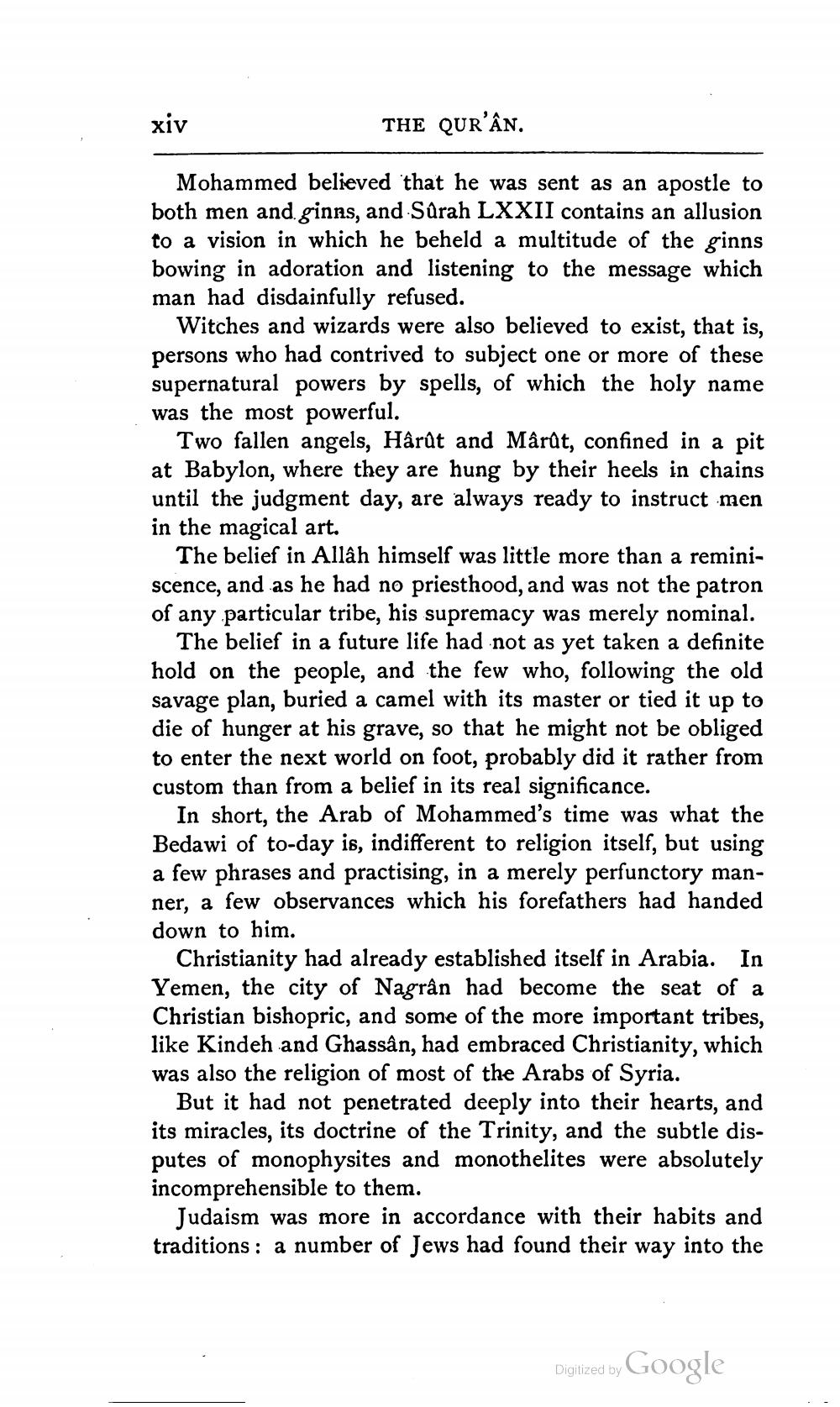________________
xiv
THE QUR'ÂN.
Mohammed believed that he was sent as an apostle to both men and ginns, and Sûrah LXXII contains an allusion to a vision in which he beheld a multitude of the ginns bowing in adoration and listening to the message which man had disdainfully refused.
Witches and wizards were also believed to exist, that is, persons who had contrived to subject one or more of these supernatural powers by spells, of which the holy name was the most powerful.
Two fallen angels, Hârût and Mârût, confined in a pit at Babylon, where they are hung by their heels in chains until the judgment day, are always ready to instruct men in the magical art.
The belief in Allâh himself was little more than a reminiscence, and as he had no priesthood, and was not the patron of any particular tribe, his supremacy was merely nominal.
The belief in a future life had not as yet taken a definite hold on the people, and the few who, following the old savage plan, buried a camel with its master or tied it up to die of hunger at his grave, so that he might not be obliged to enter the next world on foot, probably did it rather from custom than from a belief in its real significance.
In short, the Arab of Mohammed's time was what the Bedawi of to-day is, indifferent to religion itself, but using a few phrases and practising, in a merely perfunctory manner, a few observances which his forefathers had handed down to him.
Christianity had already established itself in Arabia. In Yemen, the city of Nagrân had become the seat of a Christian bishopric, and some of the more important tribes, like Kindeh and Ghassân, had embraced Christianity, which was also the religion of most of the Arabs of Syria.
But it had not penetrated deeply into their hearts, and its miracles, its doctrine of the Trinity, and the subtle disputes of monophysites and monothelites were absolutely incomprehensible to them.
Judaism was more in accordance with their habits and traditions: a number of Jews had found their way into the
Digitized by
Google




